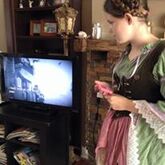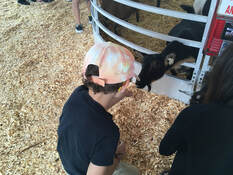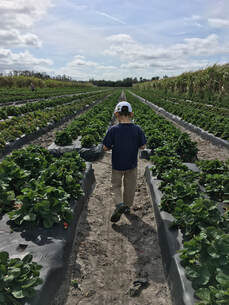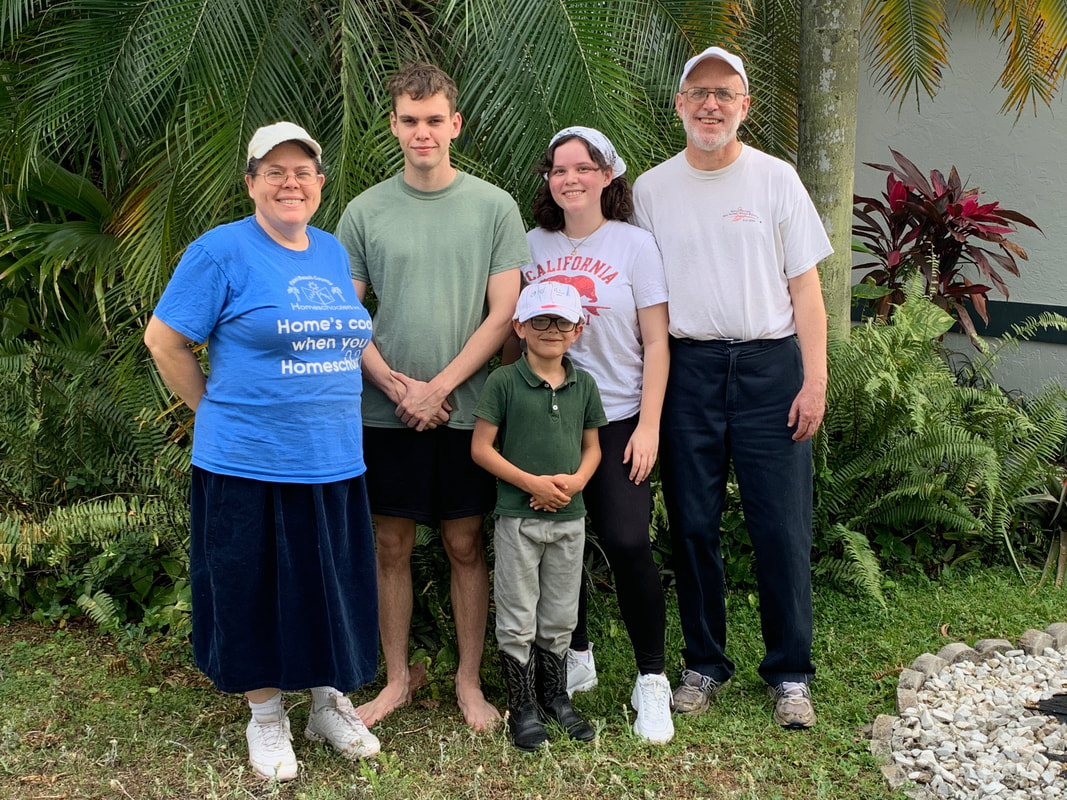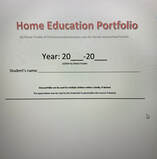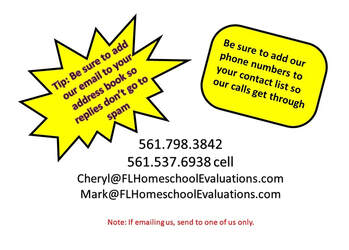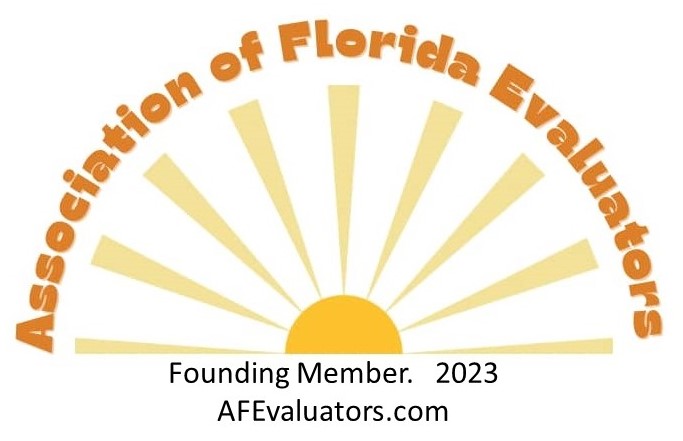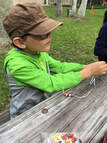|
Talking About
Florida Homeschooling... Evaluations and More |
A good evaluator works for the parents, assisting them in meeting legal requirements and in supporting them when districts overstep their bounds." |
he’ll be on the road to being an educated person. Help him start to develop the needed skills or muscles and he’ll get there faster. Some preschoolers may like a workbook page here or there but using a lot of workbooks and forcing a child to sit still to work on them is likely to be counterproductive as it can make learning less exciting and perhaps even something the child doesn’t want to do; the last thing a parent should do, in my opinion, is make the child hate learning and cause a life-long battle. But I want something organized. Surely it won’t do to come at learning in a disorderly manner? A preschooler isn’t expected to master all the ideas thrown at him. Kids are educated for more than a decade because we know they won’t understand everything immediately. The beginning doesn’t need to be organized. They can get an organized look at history, science, etc. further down the line. For now, a preschooler needs to get glimpses of the fascinating ideas, activities, etc. in the world. He needs to be motivated to want to learn more. He needs to realize that learning is fun. That is the main job of teaching a preschooler–get him to see that learning is fun. Fill his world with a variety of ideas that may eventually be connected together. Expose him to ideas that he’ll learn in the middle of playing and having fun and he’ll learn what he needs to. So what should a homeschooled preschooler do? Play a lot. Research shows that play has a lot of value. Play pretend. Play board games. Play store. Play outside and inside. Playing will stretch his mind and help him explore how the world works. Plus he’ll learn how some games have rules and how to take turns and other valuable lessons. The games may involve colors or shapes or numbers or letters or other valuable things to learn. In addition, he may even get tired enough to sit for a while and listen to stories or do other sorts of “lessons.” Get involved. Do arts and crafts. Cut and paste. Paint. String beads. Shape clay. Draw and sculpt. Not only are these things fun, they build fine motor skills that will be needed later for writing. Interact with the environment. Play with clay and water, mud and plants. Watch the animals around them. Take time to watch what ants do and where they go. Find where animals live. Go to the zoo or a farm, if possible, and see a wide range of animals. Plant seeds and watch them grow; harvest some fruits or vegetables, if possible. Care for some animals. And make sure to talk to your preschooler about what you see and what is happening. Let the preschooler make guesses and watch to see if the guesses are right. This is the beginning of science. Listen to stories and songs. Sing songs. Play with books and words. Go to story times. Listen to a wide variety of books. Watch grownups use books to relax, have fun, learn new things, cook tasty foods, create new things, get information, etc. Learn simple poems or nursery rhymes. Listen to stories and help fill in parts of them. Listen to fun videos such as “The Letter Factory” that teach letters and their sounds (or more advanced videos such as “Between the Lions” which helps teach blending sounds together and other advanced skills). Play with magnetic letters or foam letters. Play games like “I Spy” and ask the child to find things in the area that begin with a certain sound or that rhyme with another word. (Pick up a cheap phonics workbook from a discount store or bookstore if you like but that shouldn’t be the main focus.) This is the beginning of reading and literature, history and social studies, and so much more. Run errands and take the preschooler along. Explain what you are doing and why. Tell him about the people you meet and their jobs. Answer his questions, at his level, as much as possible. This is the beginning of social studies, economics, life skills, and more. Let him be around other people as possible. They don’t have to be his age. Homeschooled children learn to get along with and play with people of all ages. Let him learn social skills by interacting with others (whether siblings or cousins or neighbors or kids in a homeschool support group or ones he meets at the park or library) with a caring adult along to help him when necessary. Talk to him a lot about the world, colors, shapes, numbers, letters, what people are doing, the things you see, etc. Parents have a lot of knowledge to share, and if you aren’t sure what else to include, try looking at the list put together by World Book (the encyclopedia) with a “typical course of study” for preschoolers at World Book’s typical course of study for preschoolers Education at this age is about making the child curious about his world, giving out tidbits of knowledge that can be pieced together later, about making learning seem exciting, and beginning to learn about the world around him. Keep it light and fun at this age so he won't learn to dread education. If the child wants to run and play, don't force workbooks instead or that can backfire into a dislike of learning. (If the child likes workbooks, on the other hand, feel free to use them but use them sparingly to keep from boring the child.) If the child is worn out and wants to snuggle while a loving adult reads a story, that's a way to make reading seem like a nice activity. If the child asks questions about something he saw, taking the time to find out more, is a great idea, but don't try to force more if he's tired and has had enough. If a preschooler’s parent regularly shares books and stories with the child, introduces him to new ideas and activities often enough to keep him mentally stimulated, encourages him to explore his environment and play a lot, and helps him learn to deal well with other people, the preschooler is on his way to a great education! Note that Florida does NOT require any official education for three- or four-year-olds. Florida requires registration in an official educational program (either enrolling in a school or sending in a Letter of Intent) for the entire school year for children who are already six-years-old and for those who will turn six during the first half of the school year (by Feb. 1st of that school year). So children born between Feb. 2 and the end of the summer won't have to be registered until the fall in which they are already six. Children born after the school year begins until Feb. 1st will have to be registered officially when they are 5 since they'll turn 6 in the first half of the school year. If you want to homeschool your child, more information is available on our website. Cheryl Trzasko (Reprinted from an article she wrote elsewhere on April 19, 2017.)
1 Comment
1/2/2023 04:21:42 am
These are some great tips. As they say "parents are a kid's first teachers", you have mentioned really interesting ways I could teach my kid. Thank you so much for the blog. Keep sharing more.
Reply
Your comment will be posted after it is approved.
Leave a Reply. |
Archives
April 2024
Categories
All
|

 RSS Feed
RSS Feed
